The Lisbon Earthquake of 1775 was a 'challenge'.
The Lisbon earthquake of 1755 helped lead Voltaire to the conclusion that the 'challenges' in this world are sometimes too great.
Voltaire mocked Leibniz.

Lisbon Earthquake.
People like Leibniz argued that this earthquake produced courage and compassion and love.
Here we come to the word 'Non-Duality' - the idea that, for example, suffering and compassion are two sides of the one thing.
One could say that Duality and Non-Duality are part of the same Whole.
Some people try to describe 'Non-Duality' by saying that every thing is a mixture of 'positive' and 'negative' or 'yin' and 'yang'.

In other words, poison mushrooms are a mixture of 'useful for keeping away flies' and 'not to be eaten' and 'useful for making certain medicines'.
Some people have argued that it is impossible for God to create a 'real' world that does not contain 'yin' and 'yang'.

When some people talk about Non-Duality, they sometimes talk about the inter-connectedness of all things.
In other words, when we look at the world we normally see separate selves and separate objects, but, some people see that everything is 'connected'.
Non-Duality is difficult to describe with language, because language is dualistic (it sees everything as separate objects)
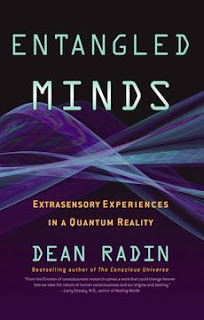
In Newtonian physics, 'things' are seen as hard, individual objects, specific to a particular space and time.
According to some research at Princeton University
We can mentally influence - and are influenced by - the thoughts of others.
We can mentally influence biological processes in bodies other than our own.
We can mentally influence the functioning of non-biological systems.
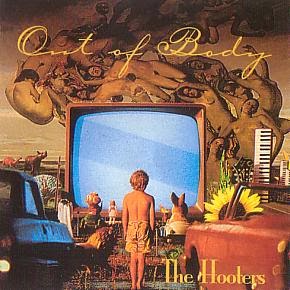
In the NON-SELF mode there is no grasping of pain or pleasure.
But this is difficult for our minds to imagine, just as 'infinity' is difficult to imagine.
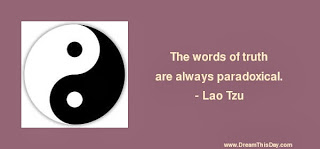
Some people write about the dangers of talking about the Oneness of everything.
Not Duality is Not Non Duality | School of Yogic Buddhism

Anonymous comments:
The other term for non-duality is monism.
The belief that there is no essential difference between the physical and the conscious.
That they are different manifestations of the same essence.
The nature of reality and existence is intimately and inextricably connected to the nature of consciousness.
This is still more than a research problem. It is *the* research problem.
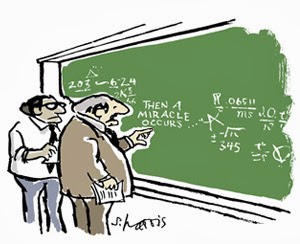
You are conscious. You know that.
You suspect that I probably am too, because there is a certain observational equivalence to our external behaviours. That is, you exercise empathy. You imagine what it's like to be me.
Is a chimpanzee or a dolphin conscious? For the same reasons, you think yes.
How about an octopus? An ant? An RSV retrovirus? An electron?
The only intellectually satisfying theory of consciousness is that everything is conscious. Only to a greater or lesser extent.
This is Tononi's Integrated Information Theory. Consciousness is a statistical emergent property of informational interconnectedness. Just as in statistical mechanics, temperature is an aggregate property derived from randomness and energy of particle movements.
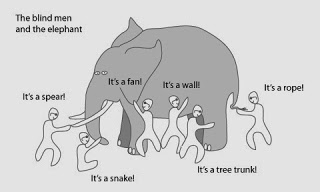
There is also a physical basis for the notion of universal interconnectedness.
In quantum mechanics, better named as wave theory, a particle is actually a wave that spans all space but is mostly localized. So in a trivial sense, yes, everything is connected. (A gross oversimplification, I know.)
Anyway, that's just physics. It doesn't translate necessarily into the touchy-feely ideas we discuss here. But it does make you think the nature of the world could be very different from the standard view.
These points enforce two important principles:
1) The importance of reality checks like the scientific method and statistical inference. To try your absolute best not to fool yourself.
2) The importance of intellectual humility and keeping your mind open to possibilities.
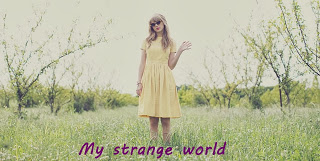
The world is unutterably strange and subtle. You will never fully understand it. You can only increase your meagre understanding through a humble and childlike curiosity and wonder. Moreover, in a created world, you will only know what you are permitted to know.
The more interesting question, mostly what you're interested in here, is this: Is God personal?
Does God care about each of us individually?
Of course, to keep track of every single individual you would have to be a god. The God, even. Which of course God is.
---
"I'm going to give you a little advice. There's a force in the universe that makes things happen. And all you have to do is get in touch with it."

Like very many people, Nixon Scraypes does not like the idea of NON-DUALITY
Nixon Scraypes said...
Oh,come on.
I have a bowl of organic brown rice and a bowl of poison toadstools.
Which shall I eat?
You tell me which is good which is bad?
What we would argue is that poison mushrooms are a mixture of 'good' and 'bad'.
Agaricus - Homeopathy - Herbs To Herbs
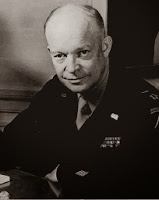
Eisenhower. A mixture of good and bad. Responsible for a lot of deaths.
Franz does not like the idea of NON-DUALITY (the idea that things can be a mixture of 'good' and 'bad')
Franz writes:
"DID SAVILE MURDER 13-YEAR-OLD GIRL?"
Do I look for some good in Savile?
Do I look for some BAD in the girl?
Jimmy Savile left the bulk of his £4.3m fortune to good causes
Someone said of Savile: "You should see him with disabled kids. You should see the pleasure he brings them."
Rudy M comments:
In your example of the uses of a poisonous toadstool, you still are making a dualistic judgment.
You are saying: "these properties are good."
You aren't doing away with a binary category, you are just applying it to specific qualities...
I've always understood non-dualism to be a lot more radical than you are presenting it to be.
Rudy M is correct in that we are not taking a radical position.

Girls of Golf...
We should not label things, such as Poison Mushrooms, as being "all good" or "all bad".
words in non-dualism - philodynamics


Swiss psychiatrist Carl Jung said:
"Natural history tells us of a haphazard and casual transformation of species over hundreds of millions of years of devouring and being devoured."

"Why? He uses a detachment visualization technique.
"It is not HIS arm attached to HIS body, but instead it is AN arm away from his body and therefore no feeling is possible.
"Amputees sometimes suffer from the phantom limb 'itch' where they feel an itch on a limb that does not exist."
Superconscious: Pain Control Via Detachment

Consider Duality and Non-Duality.
Duality can mean that we label things as either 'good' or 'evil'.
The problem is that some Nazis labeled the concentration camps as good, vultures label dead humans as good, and some people even like the game of cricket.
The problem is that a pleasant game of golf is always a mixture of plus and minus.
And even 'Suffering' can be positive if it leads to progress on a spiritual path, or if it reminds you that it's time to visit the dentist.

Concentration camps?
Of course concentration camps are 'bad'.
But, the reason we got concentration camps in Germany was because the Nazis labeled Jews, Gypsies, homosexuals and handicapped people as 'bad'.
Ideally, we see that "the line dividing good and evil cuts through the heart of every human being."
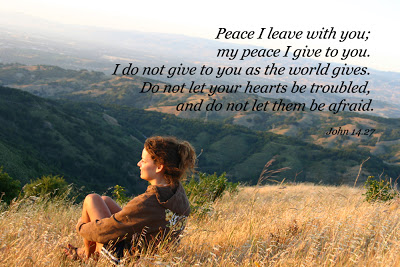
What is Non-duality?
There are many different descriptions.
Imagine you can see some good in your pet cat, which has just killed the bird.
Should we believe in Duality or Non-Duality or both?
In this world it is only natural that some people label things as being entirely good or entirely bad.
But, ideally we should try to understand Non-Duality.
The US military labeled this Asian child as unimportant. The child is a victim of the Pentagon's Agent Orange. www.documentingreality.com...
If the Nazis had adopted the idea of Non-Duality, they would have seen that they were related to the Jews.
If the Pentagon adopted the idea of Non-Duality, they would stop murdering dark-skinned children all over the world.
Imagine pure Being, Consciousness and Bliss, which is so enlightened that it is free from suffering.
The spiritual teachers of the past seem to have had a lot in common.
From Luke 9:48
The one who is least among you is the greatest.
From Taoism:
If you want to be reborn, let yourself die.
If you want to be given everything, give everything up.

Don't keep searching for the truth; just let go of your opinions.
For the mind in harmony with the Tao, all selfishness disappears.
With not even a trace of self-doubt, you can trust the universe completely.
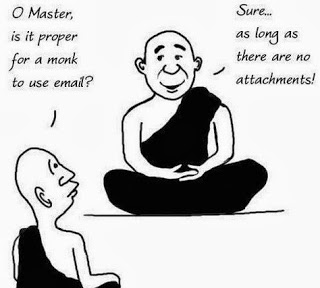
All at once you are free, with nothing left to hold on to.
All is empty, brilliant, perfect in its own being.
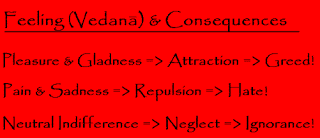
The Taoist Seng T'san wrote:
In the world of things as they are, there is no self, no non self.
If you want to describe its essence, the best you can say is "Not-two."
In this "Not-two" nothing is separate, and nothing in the world is excluded.
The enlightened of all times and places have entered into this truth.

There is no here, no there; infinity is right before your eyes.
The tiny is as large as the vast when objective boundaries have vanished;
the vast is as small as the tiny when you don't have external limits.
Being is an aspect of non-being; non-being is no different from being.
Until you understand this truth, you won't see anything clearly.
Anonymous writes:
May I add - this can also be discussed in graphical terms.
I like to think of it as the triumph of the enso over the taijitu.
For mine, the taijitu is too complicated. Unnecessarily busy.
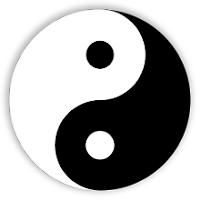
taijitu.
The enso on the other hand is the simplest symbol that exists.
Which in symbol terms makes it pretty much perfect. (Or is that word bad? How about 'ideal'?)
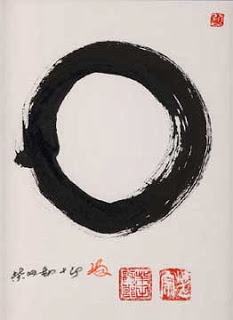
And then there's the enso's unconnected appearance in mathematics wherein it represents zero. Or is it unconnected? Where's Jung when you need him?
Regardless, zero is interesting - it didn't exist until really quite late in history. It took a long time for people to get their heads around it. I also like the fact that zero is (arguably) the antithesis of mathematics. I never did like maths - it's the language of priests - and zero (qua zero) is pretty much of no use to them.
From maths to religion and back again: zero equals nothingness, and nothingness equals a transcendence of duality. So we've two priesthoods, one embracing numbers, and the other embracing duality, and both find themselves stymied by the simplest symbol in the world.
Which happily brings us full circle.
But then it would, wouldn't it?
best etc. etc.
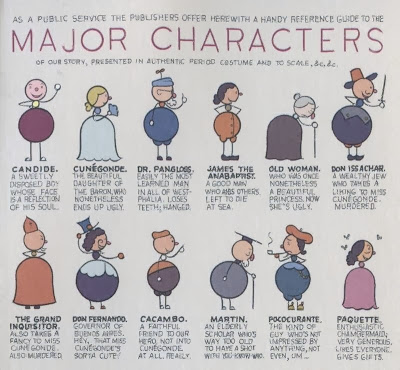
Anonymous comments:
It's funny how you mention the Lisbon earthquake and Voltaire. Only a month ago I finally got round to reading Candide. What an extraordinary book. It's as funny as anything I've ever read and yet it details nothing but a long list of utter disasters. All of the episodes are related in a truly curious tone of sanguine naivete. Disaster follows triumph follows disaster, ad infinitum, with each as real as it is absurd.
Perhaps it is fair to say that there is no 'attachment' to anything? Regardless it all ends with Pangloss and his clapped-out Leibnitzean philosophical platitudes being ignored in favour of that most mundane of things, gardening.
What if I was to say that: some things just are. Or simpler yet: things just are. Disasters, triumphs, they are both just things to be survived. To define oneself by either would be foolishness. Imagine a man who never got past a tragedy that befell him. Or a one-time celebrity who never got over their sense of deserving. Tedious.
Thus, the mushrooms are survived or they aren't. The rice is survived or it isn't. The concentration camps are survived or they aren't. The guilt of surviving is survived or it isn't.
.jpg)
Paul Rassinier...
May I come back to Paul Rassinier? The entire war spent in Treblinka and yet he felt no great antipathy towards the Germans. He viewed what was done to him as being much like what he'd participated in in the French army in Morocco. A variation on Candide it seems. Further, he put the extremity of those survivors howling bloody murder down to their own sense of shame due to having been guiltier than the SS in terms of their infliction of misery and suffering. The 'un-Candide' perhaps?
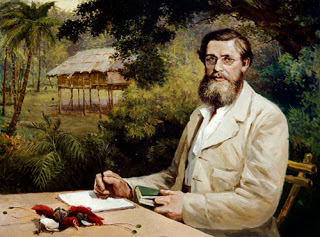
The Alfred Russel Wallace who discovered evolution at the same time as Darwin. Wallace believed that people have spirits which survive death.
Survive, not survive, might we declare we're in Darwin's turf now? In spite of not being a philosopher as such, Darwin was, ahem, a philosopher. He attains this by the simple expedient of attaching no judgement to anything. It should be noted that the word 'fittest' was not his but rather a later foreword writer's. He himself never uttered it. That would have been judgemental. For Darwin things were survived or they weren't and that's all there was to it. Or to put it another way, they were neither good nor bad, they merely were.
Of course it's no surprise that the church loathed Darwin. Where was the judgemental God in this world that just was? And of course the same went for Voltaire's Candide. It was banned most everywhere with the US still cracking down on it in the 1930's. "Let us eat a Jesuit" ha ha ha.
Otherwise God forbid we should view the world in anything other than a simple dualistic fashion. No really, it must be that way or else what need of God would there be?
It's a laugh isn't it? In a logic-free world it's as sensible a response as any other.
Off I go now, etc. etc.
MAGIC BULLET PEOPLE

12 comments:
Hullo Aang,
It's funny how you mention the Lisbon earthquake and Voltaire. Only a month ago I finally got round to reading Candide. What an extraordinary book. It's as funny as anything I've ever read and yet it details nothing but a long list of utter disasters. All of the episodes are related in a truly curious tone of sanguine naivete. Disaster follows triumph follows disaster, ad infinitum, with each as real as it is absurd.
Perhaps it is fair to say that there is no 'attachment' to anything? Regardless it all ends with Pangloss and his clapped-out Leibnitzean philosophical platitudes being ignored in favour of that most mundane of things, gardening.
What if I was to say that: some things just are. Or simpler yet: things just are. Disasters, triumphs, they are both just things to be survived. To define oneself by either would be foolishness. Imagine a man who never got past a tragedy that befell him. Or a one-time celebrity who never got over their sense of deserving. Tedious.
Thus, the mushrooms are survived or they aren't. The rice is survived or it isn't. The concentration camps are survived or they aren't. The guilt of surviving is survived or it isn't.
May I come back to Paul Rassinier? The entire war spent in Treblinka and yet he felt no great antipathy towards the Germans. He viewed what was done to him as being much like what he'd participated in in the French army in Morocco. A variation on Candide it seems. Further, he put the extremity of those survivors howling bloody murder down to their own sense of shame due to having been guiltier than the SS in terms of their infliction of misery and suffering. The 'un-Candide' perhaps?
Survive, not survive, might we declare we're in Darwin's turf now? In spite of not being a philosopher as such, Darwin was, ahem, a philosopher. He attains this by the simple expedient of attaching no judgement to anything. It should be noted that the word 'fittest' was not his but rather a later foreword writer's. He himself never uttered it. That would have been judgemental. For Darwin things were survived or they weren't and that's all there was to it. Or to put it another way, they were neither good nor bad, they merely were.
Of course it's no surprise that the church loathed Darwin. Where was the judgemental God in this world that just was? And of course the same went for Voltaire's Candide. It was banned most everywhere with the US still cracking down on it in the 1930's. "Let us eat a Jesuit" ha ha ha.
Otherwise God forbid we should view the world in anything other than a simple dualistic fashion. No really, it must be that way or else what need of God would there be?
It's a laugh isn't it? In a logic-free world it's as sensible a response as any other.
Off I go now, etc. etc.
http://www.veteranstoday.com/2013/10/26/waking-up-to-the-holographic-universe/
Sanskrit Proverb :
Elixir of life is to be accepted even if comes from poison, a piece of gold is to be accepted even from impure. A good conduct is to be learnt even from an enemy and a good lady is to be accepted even from a bad community.
savikalpa samadhi
Determinate spiritual experience
To see everything as separate but feel everything as connected.
The awareness that duality is absent.
Nirvikalpa samadhi
The pure indeterminate intuition of non-duality.
I was just trying to describe how judgements on one situation are craftily slid over to a different one in order to influence and mislead opinion and here we have it happening in abundance.The world is dualist and non dualist depending on the way you look at it and as I'm not a duellist it doesn't bother me.What duellists do is use dualist logic in the non dual sphere and vice versa.All these famous name philosophers are just the "Brains" who justify the"Big Boss's actions,they're the intellectual duellists.Darwin was a fabulously rich member of The Mob tasked with justifying the might is right jive to legitimise the empire.Incidentally he really did look like a monkey!
It's the non-D gurus I wonder about. The moment you're a guru, there are non- gurus. Surely, the moment you seek enlightenment you lose it?
Like I wondered how blonde, beautiful Gangaji's rather public divorce from hunky enlightened hubby was: he'd been playing away with one of their students for three years. I wondered if any raised voices and slapping had been heard behind the scenes.....sorry to lower the tone - couldn't help wondering about that.
And I'm sure they're all lovely people (really) but I watched a vid of an enlightened teacher the other day, and there was he up on the podium next to the vase of lilies, and there was this American woman in the audience, asking ever-so-sincerely (bless her) an earnest question about why she couldn't lose her ego, and there was R having to hammer it home a little.....and there was a group of his unenlightened male supporters at the back of the class and they were GUFFAWING at this poor woman - shame on them - and she carried on so bravely amid all the hee-haws......and suddenly, I caught Rupert's body language....it looked mightily for a split second or two as if he was thoroughly enjoying being egged on by the disciple lads and being the great teacher dispensing wisdom from his chair.....just saying. As a non-guru. Sorry,
Wow, love the golf photo. Sorry, weakness for sporty women.
Umm, anyway...
The other term for non-duality is monism.
The belief that there is no essential difference between the physical and the conscious.
That they are different manifestations of the same essence.
The nature of reality and existence is intimately and inextricably connected to the nature of consciousness. This is still more than a research problem. It is *the* research problem.
You are conscious. You know that.
You suspect that I probably am too, because there is a certain observational equivalence to our external behaviours. That is, you exercise empathy. You imagine what it's like to be me.
Is a chimpanzee or a dolphin conscious? For the same reasons, you think yes.
How about an octopus? An ant? An RSV retrovirus? An electron?
The only intellectually satisfying theory of consciousness is that everything is conscious. Only to a greater or lesser extent.
This is Tononi's Integrated Information Theory. Consciousness is a statistical emergent property of informational interconnectedness. Just as in statistical mechanics, temperature is an aggregate property derived from randomness and energy of particle movements.
I've had these sorts of discussions maybe twenty years ago. Colleagues insisted there was some sort of arbitrary dividing line: dogs are conscious but ants are not. To me this was nonsensical: where do you draw the line? Consciousness is an inherent quantifiable phenomenon of nature, like a natural force. But when you push the issue, they just get impatient. The notion that a molecule has some infinitesimally small degree of consciousness was just too radical for them.
There is also a physical basis for the notion of universal interconnectedness.
In quantum mechanics, better named as wave theory, a particle is actually a wave that spans all space but is mostly localized. So in a trivial sense, yes, everything is connected. (A gross oversimplification, I know.)
Anyway, that's just physics. It doesn't translate necessarily into the touchy-feely ideas we discuss here. But it does make you think the nature of the world could be very different from the standard view.
These points enforce two important principles:
1) The importance of reality checks like the scientific method and statistical inference. To try your absolute best not to fool yourself.
2) The importance of intellectual humility and keeping your mind open to possibilities.
The world is unutterably strange and subtle. You will never fully understand it. You can only increase your meagre understanding through a humble and childlike curiosity and wonder. Moreover, in a created world, you will only know what you are permitted to know.
The more interesting question, mostly what you're interested in here, is this: Is God personal?
Does God care about each of us individually?
Of course, to keep track of every single individual you would have to be a god. The God, even. Which of course God is.
---
"I'm going to give you a little advice. There's a force in the universe that makes things happen. And all you have to do is get in touch with it."
I have added to the text at various points.
- Aangirfan
I’d say the function of duality, i.e. the existence of two extremes is equilibrium – a charged state of inertia between two points of reference..
And maybe that’s what sanity is. Balance.
Because of the changing nature of reality, modification is required from moment to moment to hold the stillness within a person that can allow for quiet growth with momentum.
The weighing up of constantly changing odds and the careful shifting slightly towards one pole or the other while avoiding dangerous swings.
Like walking.
I don’t think there can be an absolute psychological position of rightness and wrongness. Everything is true and everything is false. (One should not confuse this statement with social relations wit another being the basis of which is don’t do to someone else what you would not like done to you – not is it ‘good’ or ‘bad’?)
One is not the same person today as one was yesterday and tomorrow again one is new.
The mind like the body seems to be being constantly flushed out with thoughts and something is renewed until the threshold is reached, the tide ebbs and we fade from this world never knowing why we came.
The big problem in any discussion is trying to communicate with words – it’s my observation that we don’t really know what we mean or what we do with these powerful sounds so many generations after they were chosen or came into being.
We never put words together ourselves although they can function like building blocks.
There are many skills we no longer command since we started accepting ready made tools and thus ready made reality.
Perhaps meaning still survives in medical terminology and such but something else is going on with common speech which has an awful lot to do with showing off.
No one gets taught Greek and they don’t get taught medicine either.
Old hat, isn't it?
Very interesting and thought provoking. I agree there is just something that makes things happen!
I am always fond of saying it is God out there that is making the grass grow.
Oh and me likes the girls of golf!
The great way has no impediments - it does not pick and choose.
When you abandon attachment and aversion, you see it plainly.
Make one thousand of an inch distinction - heaven and earth swing apart.
If you want to see it appear before your eyes, cherish neither for nor against,
To compare what you like with what you don't like - that is the disease of the mind.
You pass over the hidden meaning. Peace of mind is needlessly troubled.
It is round and perfect, like vast space. Lacks nothing. Never over-flows.
It is only because we take and reject, do we lose the means to know its such-ness.
Don't get tangle in outward desire, or get caught within yourself.
Once you drive deep the longing for peace, confusion leaves of itself.
Return to the root and find meaning. Follow sense objects, you lose the goal.
Just one instant of inner enlightenment will take you far beyond the emptiness of the world.
Self-attachment forgets all limits. It always leads down evil roads.
When you let go of it, things happen of themselves. The substance neither flows or abides.
If the eye does not sleep, all dreams naturally stop. If the mind does not differentiate, all things are of one such-ness.
When you fathom the realm of such-ness, you instantly forget all selfish desire.
Having seen ten thousand things as one, you return to your natural state.
Without meditation, consciousness and feeling are hard to grasp.
In the realm of such-ness there is neither self nor other.
In the one there is the all. In the all there is the one.
If you know this, you will never have to worry about being incomplete.
If belief and mind are made the same, and there is no division between belief and mind, the road of words comes to an end. Beyond present and future.
Ts'an
Post a Comment